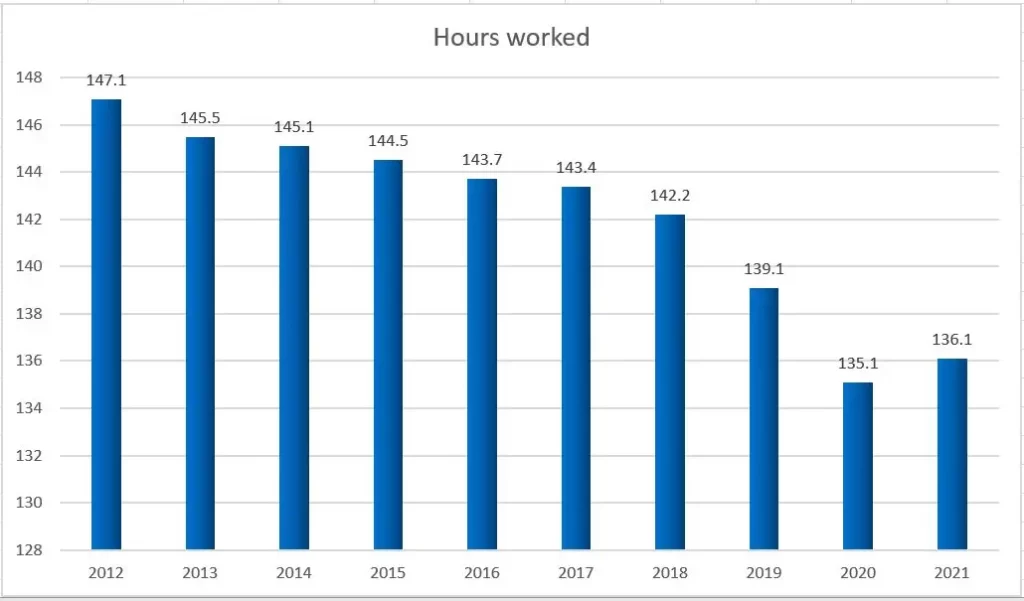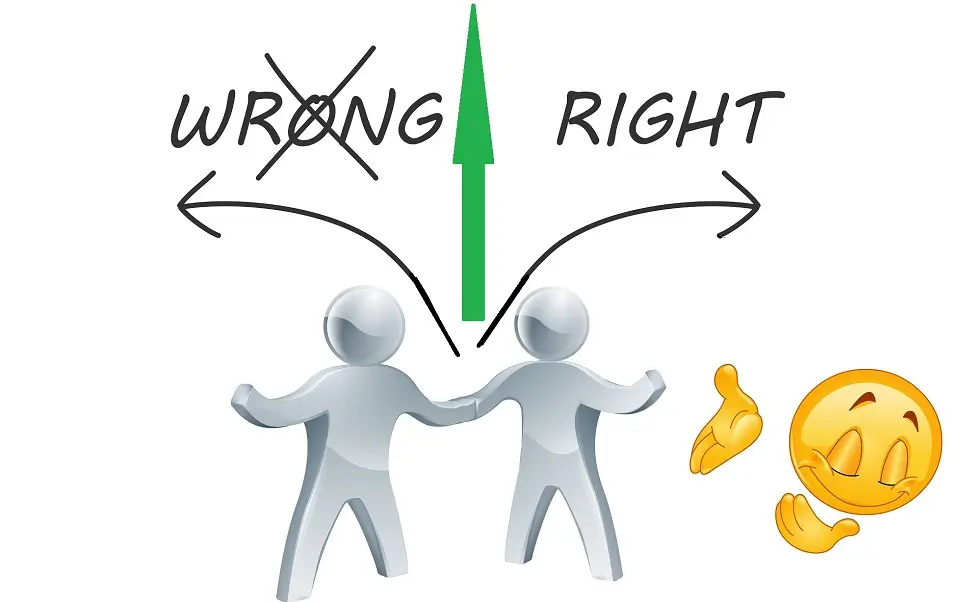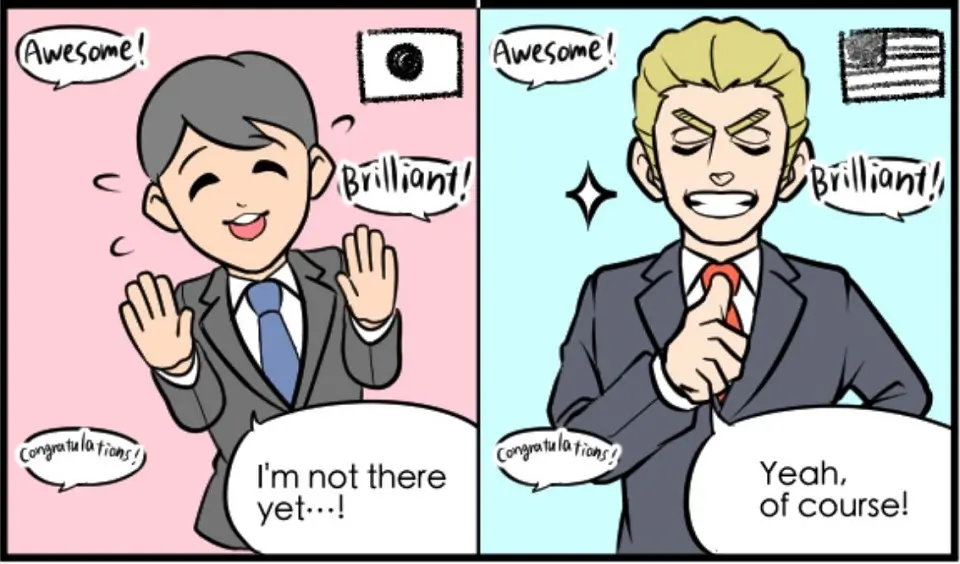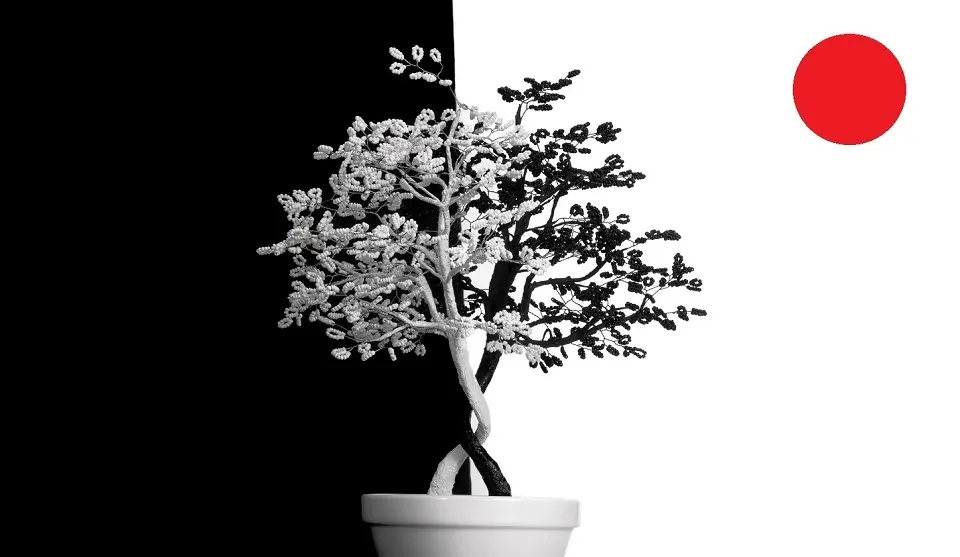Japanese Work Culture: Surviving to Succeeding

Japanese work culture has always been a much-discussed topic among foreigners. Some deeply criticize it, and some admire it. However, the discussions about it show people’s widespread curiosity about Japan’s working environment and practices.
It happens very commonly when we come across something that is very different from our experiences; sometimes, we feel shocked and sometimes, we feel admiration. And both these scenarios tend to exaggerate about it.
This exaggeration of either the positive or negative aspects may create an image far from the actual facts. Therefore, this interesting topic of Japanese working culture requires a thorough discussion of the real facts and the pros and cons to develop an understanding of the cultural aspects of Japanese work environment to not just survive to succeeding in Japan.
This article aims to highlight the facts about the current Japanese working environment and situations and not delve into the past. However, the past is always a foundation and should not be ignored. Therefore, we will also explore historical facts and even geographical factors that helped shape Japan’s working culture, which we see today.
We will also discuss the reasons behind the evolution of Japan’s work culture and how the work practices changed over time. However, you may also like to read about Japanese culture in your daily life.
This article will also discuss some statistics to help you understand why working in Japan can be an exciting option. So, let’s examine Japan’s work culture and ethics in the traditional Japanese environment and how it is evolving with the changing times.
Core Values of Japanese Work Culture
Japanese Work culture is based on intense commitment, ethics, and extreme dedication to the company and the work, with an extremely high sense of responsibility. It is also highly process-oriented, with a very high attention to micro-details. Traditional companies in Japan also have a strict hierarchy system.
Traditionally, Japanese people have appreciated the workplace as a second home with lifetime employment practices. Such feelings may be seen in traditional Japanese mega-corporations even today. However, while lifetime employment practices are on a decline in a handful of such mega-corporations, this practice no longer exists in other Japanese organizations.
A View from the Outside Vs. Inside Realities
Discussions about the lack of work-life balance and very long working hours in Japanese working culture and corporate life are quite common. So are stories about harsh working conditions with seemingly never-ending working hours, highly disciplined and formal working conditions, and a strict hierarchy system.
However, stories are often exaggerated. Moreover, times and conditions change everywhere, and Japan is no exception. Obviously, the Japanese work culture has also been changing for good to meet the changing realities of changing times.
Progressive, modern Japanese companies offer great work environments. Their work culture is carefully tailored to maximize the talent’s potential for mutual growth and work-life balance.
The mention of the traditional work practices in Japan mustn’t scare you because if, as a foreigner, you are moving to work in Japan, you are likely to join a more global-minded company. This is especially true for tech jobs.
Today’s tech and other progressive companies are very different from traditional companies in Japan. Their work culture will still be a mix of Western flexibility and Japan’s work traditions, focusing on quality, punctuality, and continuous communication to keep everyone on the same page.
Moreover, you will enjoy very high flexibility and benefits. Working from home or anywhere, flexible timings and other such flexibilities are now the norm in many companies in Japan.
After reading this article, you may also wish to listen to some interviews with foreign engineers working in Japan about their experiences.
Highlights of the Traditional Working Culture in Japan
We will go deeper into the Japanese working customs and practices and discuss the transformation companies have brought into the work environment. However, before digging deeper, let’s check the following key highlights of traditional Japanese corporate work practices:
- Emphasis on teams rather than individual performances
- Strict hierarchies and ranks
- Long working hours
- Very formal work environment
- Extremely close attention to detail and quality consciousness
- Highly process-oriented approach
- Slow decision-making
- Meetings, meetings, and meetings
- Paperwork rules
- Indirect communication style
- Politeness and Service from the Bottom of the Heart
- Business cards are a must
We will discuss all the above workplace cultural aspects, their reasoning, and their pros and cons later in this article.
Historical and Other Factors That Influenced Japanese Work Culture
Culture is nothing but the norm we, as a society, do things.
History, geographical factors, and geopolitical reasons over time shape those norms and how we live to create a better societal framework. Geographical reasons and history shaped the Japanese working culture in more ways than what meets the eye at first glance. Let’s dive deep into those facts:
1. Socio-cultural Factors
Like any country, Japan’s work culture also stems from social traditions. The main pillars which shape business practices are the following peculiar characteristics of Japanese people and society:
- Group harmony and respect for others
- collectivistic culture and not individualistic
- Respect for ranks and hierarchy
- Very Process-oriented
- Less talkative
- Safety and, hence, the risk aversion
- Not confrontational
- Formal and not casual
The above factors directly relate to the traditional working practices and customs we listed earlier.
2. Situational and Aspirational Factors
The situational factors that affected some aspects of Japan’s work practices were the need for fast-paced modernization and economic growth to match the other economic powers.
The two phases related to the situations mentioned above were as follows:
- Meiji era from October 23, 1868, to July 30, 1912
- Post-World War II recovery phase
3. Meiji Era’s Effect on Japanese Working Practices
Japan had kept itself isolated from the world for centuries. Although no Western powers ever invaded Japan, maintaining the isolated feudal society had a great risk of Japan getting invaded because when you are alone, you are weak.
The only way out was to match and reach the economic and military might of some Western powers. The Meiji era took a focused approach to that transformation. The need for fast modernization and economic growth required dedicated hard work, which is still reflected in Japan’s work culture.
4. Focus on Reviving the Japanese Economy Post-World War II
World War II had left Japan in shambles. Japan’s per capita GDP in 1945 dipped by 53% of what it was in 1945, and it was 11% of the GDP of the USA at that time. However, by 1991, the per capita GDP of Japan rose to 85% of that of the USA and 120% of Britain.
The need to recover fast made at least one complete generation of Japanese sacrifice themselves by dedicating their lives only to work. This phase again added to the momentum of the Meiji era to shape many aspects of Japan’s work culture.
Deeper Dive into Japanese Work Cultural Aspects
1. Collectivist and Not Individualistic
While Western work culture is more individualistic, Japanese society believes in collectivism, and the same belief rules the workplaces and practices also. For example, being hired by a Japanese company is akin to joining a family. You all work in the same space, and keeping harmony in the workplace is essential to business and individual success.
In Japan, the focus is always on the group rather than the individual. There is always an expectation to put the group’s success ahead of individual accomplishments. Therefore, group harmony is always vital to Japanese culture.
In Western countries, an individual would be praised for independently solving issues. However, Japanese companies view these acts as selfish, egotistical, and potentially dangerous for the team.
Unlike the West, where each employee may have a separate cubicle, you’ll hardly see an office like that in Japan. The open layout allows for collaboration not only within each team but also across different sectors as well. Everyone works in the same room, creating a natural sense of belonging within the work environment.
Traditionally, Japanese companies encourage team-building activities even though they will not call them team-building exercises. Employees are encouraged to participate in events such as Hanami (花見), meaning flower-viewing picnics, monthly luncheons, or on company trips throughout the year.
Maintaining teamwork is the responsibility of each person to practice daily. The training periods in domestic companies focus a lot on teamwork and practices that have achieved success over the years from their mentors.
However, it’s amazing to see how Japanese society balances this collectivism with individualistic, competitive spirits.
Japanese Proverbs about Group Harmony
Many old Japanese proverbs highlight the importance of group harmony in Japanese culture, which extends to the work culture. Following are some examples of such proverbs:
- 出る杭は打たれる (Deru kui wa utareru): “The stake that sticks up gets hammered down.” This is often used to convey the importance of conformity and not to stand out in a group.
- 和を以て貴しと為す (Wa o motte tattoshito nasu): “Harmony is to be valued.” This saying speaks to the high value placed on group harmony in Japanese society.
- 一を聞いて十を知る (Ichi o kiite ju o shiru): “Hear one and understand ten.” It expresses the cultural expectation that one should understand and respect the implicit, unspoken elements in communication, which is key to maintaining group harmony.
2. Emphasis on Hierarchy and Ranks
Japanese society always views hierarchy and ranks more seriously than Western culture. Therefore, these traditional values also shape work practices. The strict hierarchy system can be witnessed even in the seating arrangements in business settings in Japan.
Traditional companies in Japan emphasize age and length of service for seniority. Typically, most people working for major companies join out of school and stay with the same company. This is generally true with mega-corporations in Japan, but the situation has changed with small and medium-sized businesses.
In traditional Japanese companies, senior management is usually much older. They have progressed based on length of employment, steadily increasing in the ranks. Employees are expected to keep managers posted about their work progress.
Assigned tasks require frequent approvals. However, in Japanese collectivistic culture, approvals are not given by a single decision-maker; the whole team becomes a part of the decision-making.
3. Long Working Hours
We’ve all heard about the dreaded overtime work in Japan. CNBC reported in 2018 that a survey conducted by the Japanese government in 2016 showed that nearly 25% of Japanese companies require employees to work overtime by 80 hours. The data point to be noted here is “25%.” Should we neglect the other 75% to generalize?
While the amount of overtime you’re expected to do will vary from company to company and the industry, most traditional companies in Japan expect their employees to do some overtime work. However, we must ask ourselves whether it is “only” specific to Japan?”
In the olden days in Japan, it was generally rude to leave before your boss left. While that attitude has certainly changed, there’s still an understanding that the hardest-working employees are the ones who stay late.
It was the traditional belief that staying late shows dedication to the job and reflects that you enjoy your work. Some management kept a watchful eye on who stayed late. Knowing that someone is staying late is consistently used to put employees in their good graces.
At traditional workplaces, it’s common to use the phrase “osaki ni shitsureishimasu” which translates as “Sorry for leaving before you.” It acknowledges your co-worker’s hard work while apologizing for your early departure. However, these workplace practices are now limited to traditional domestic companies.
Past Vs. Present: Change in Average Working Hours
Long work hours are also the same in Japan’s domestic and foreign multinational companies in Japan. However, many progressive companies started focusing on a better work-life balance. Moreover, overall, Japan is continuously improving to have a better work-life balance by limiting overtime work. Let’s have a look:
The data of the average number of hours worked per month in Japan as per Statista is as follows:
| Year | 2012 | 2013 | 2014 | 2015 | 2016 | 2017 | 2018 | 2019 | 2020 | 2022 |
|---|---|---|---|---|---|---|---|---|---|---|
| Hours worked | 147.1 | 145.5 | 145.1 | 144.5 | 143.7 | 143.4 | 142.2 | 139.1 | 135.1 | 136.1 |

Positive Signs of Change
The above table and graph show that though the average hours worked per month in 2021 slightly increased over 2020, Japan has seen a continuous decline in average working hours since 2021.
The average hours worked declined by 8.16% from 2012 to 2020, and the decline from 2012 to 2021 was 7.48%.
The data above shows that Japan’s working style is becoming more relaxed regarding the dreaded overtime requirements of the past.
Moreover, flexibility is again on the rise when working from home is becoming a norm after the COVID pandemic hit the world.
In traditional businesses, people still feel uncomfortable taking a vacation because it may burden the team. However, in such traditional setups, the exceptions are the times around Golden Week, the New Year, and some long holiday seasons like OBON. These holiday times are those when most Japanese employees take leave from work to have longer vacations.
4. Very Formal Work Environment
The Japanese work environment is very formal. Unlike Western countries, in Japan, most address each other by their last name followed by ‘-San.’ The office dress code is generally formal dark-colored suits and sober ties.
However, the official dress codes have become much less formal since the Tsunami of 2011. The tsunami affected electric power production, and the government came up with concepts like “CoolBiz,” meaning “Cool Business.” The idea was to have companies do away with suits & ties to keep the air conditioning to optimum levels.
Psychologically, how we dress also affects our behavior; therefore, clothing impacts our thinking. Behavioral changes may be slow, but they eventually come. A simple change, such as moving to a less formal workplace dress code, also changes behaviors. Ultimately, less formal behaviors slowly make the entire Japanese business environment and business practices in Japanese corporations less formal.
5. Extremely High Attention to Detail and Quality Consciousness
Japanese companies are known for their unique execution style and attention to detail. This extremely close attention to detail again finds its roots in cultural aspects of society. Japanese people are obsessive about every micro-detail in what they do.
Japanese people spend a lot of energy on planning right down to the most minute details. To many foreigners, this micro-management in businesses becomes frustrating; however, this is the Japanese way of ensuring perfection in the results.
The same is true for the final stages of many processes where quality assurance or testing is involved. Japanese companies tend to spend considerably more time on testing and quality assurance.
Attention to detail is also important because the group’s performance is more important than the individual’s. A small individual mistake by one member can affect the entire group, which is considered a crime.
The pros of this obsessive attention to detail are the resultant quality in whatever they do or produce and an unmatched customer service quality; however, the cons are the slow decision-making and low productivity levels.
The beauty is that this detail-oriented approach makes the entire system work like a perfectly lubricated machine. You can see the evidence in the public transport system where a train getting late even by a few seconds is considered unpardonable.
6. Highly Process-Oriented Approach
The highly process-oriented approach in business and personal life relates to the mindset of paying close attention to every micro detail.
Japanese people believe in fixing the entire process by doing a complete root-cause analysis rather than fixing the problem itself. Japanese business process Kaizen, which means “change for the better” or “improvement,” is all about improving the processes.
The pros of the highly process-oriented business culture are better quality and fewer chances of mistakes in general, and the cons are the time to go to the market and a mindset with high resistance to change.
7. Slow Decision-Making
Businesses in Japan are infamous for their extremely slow decision-making process.
One of the reasons is that there is no single decision-maker. For every decision, a consensus needs to be built by checking all the possible side effects of every aspect of the possible outcome because of that decision. The other reasons are the focus on perfection and the tendency to be risk-averse.
The tendency to devote much effort and energy to minor tasks to achieve perfection is often time-consuming. However, landing on the finer details is the difference between good and great service.
Yes, it differs from the startup culture of pursuing MVP (minimum viable product). That has been one of the reasons that startups in Japan have been slow to catch up with the world. But then, the world needs startups for growth but not for the economy’s stability and continuous growth.
The slow decision-making process can be quite frustrating for foreigners dealing with Japanese businesses. However, the implementation is generally very efficient and fast once the decision is made.
8. Meetings, an Integral Part of Work Culture
If you are new to dealing with Japanese businesses, the number of meetings may surprise you.
Meetings are an integral part of Japan. Such frequent meetings are why the meetings with the business partners need to be fixed with long advance notice. This is because of the unavailability of the person attending other meetings or the unavailability of the meeting rooms themselves.
As a foreigner, you may often wonder about a meeting request for a decision or reason for which a short telephone call may suffice. However, the Collectivist culture and need for consensus for every decision make it very difficult to avoid the need for such frequent meetings at work.
9. Paperwork Rules in Japan
Even after all these years in Japan, the sheer quantity of paperwork never ceases to astound me. For instance, as a freelancer, even for a simple job, you will likely have to provide a written quotation/estimate (mitsumorisho).
Moreover, a purchase order will follow this quotation. After the work is executed, you need to provide a “statement of delivery.” Of course, sending the invoice is required in any country.
While this type of paperwork is not unique to Japan, online signatures are still relatively rare. Therefore, be prepared for many printed documents that must be stamped using an official Hanko and sent by post. Furthermore, keeping track of all this paper can be a tremendous job, as it is very easy to lose a document.
You may think that if you are doing an in-depth presentation, you could keep the materials for your client simple. This is definitely not the case, as those attending will expect full printouts of all the slides (yes, the same ones in your presentation) and supplements that include detailed outlines of your company/product and brochures.
Many businesspeople in Japan seem to mistrust businesses that keep their information minimal, so be sure to prepare and bring enough material.
On-spot decision-making in Japan is rare, so people carefully review any business documents and data you supply later. Then, they analyze, discuss, and deliberate at great length to reach a consensus.
10. Indirect Communication Style

Miscommunication is not just because of the language. Japanese communication style differs greatly from how people from many other cultures communicate. Japanese people have different ways of communicating their thoughts and ideas. Unlike Japanese, English speakers are usually low-context communicators.
Normally, Westerners say what they mean without hesitation. Japanese speakers are usually high-context communicators. They tend to avoid directly sharing their ideas, especially negative ones.
These subtle differences can be hard to detect and may come off as passive-aggressive behavior if you’re not used to them. However, understanding this communication style could mean the difference between success and failure in the workplace.
11. Politeness and Service from the Bottom of the Heart
In the West, people say “the customer is always right,” but in Japan, they say “the customer is God.” In Japanese it is “Okyakusama wa kamisama” (お客様は神様).
There’s a lot of care and precision in Japanese customer service. Japanese companies spend a lot of time on training and presentation. Staff are taught how to greet customers, bow properly, and even how to point at things properly.
Japanese hospitality, called Omotenashi (おもてなし), is about more than being polite. It is about anticipating the needs or expectations of others and selflessly fulfilling those by abandoning one’s interests.
Omotenashi is all about doing things for the benefit of your guest or customer. Likewise, the workplace is about people trying to be pleasant and non-confrontational. It’s easy to take for granted once you get used to it, but it’s a stark contrast to the rough politics of non-Japanese companies.
Working in a Japanese organization can feel demanding if you’re not used to the Japanese way of conducting business. In addition, unfamiliar concepts like “reading the air” and Omotenashi can take some time to get used to.
However, once you’ve grown accustomed to life in Japan, you’ll be able to succeed quickly.
12. Importance of Business Cards
Unlike many Western countries, business cards are integral to Japanese business culture. In Japan, business cards have Japanese content on one side and English on the other.
If you are making your business cards yourself, be sure that the paper and inks are of good quality. Your card represents you and your business!
Pros and Cons of Japanese Working Customs
There are no absolutes in the world. Everything has its pros and cons. Some of the key features of Japanese business culture, at least in traditional setups, like being collectivists and a strong emphasis on teamwork, a strict hierarchy system, and the tendency to go into each micro detail of every task (well, this factor is the same with any Japanese company) also have their pros and cons. Isn’t it right to check both sides of the coin with an open mind?
Cons
The above-mentioned aspects of customs mainly result in slow processes, often delayed execution and go-to-market timelines, and increased costs. No doubt, Japan tends to keep its place among the high-cost countries.
More importantly, one of the biggest disadvantages of traditional work practices is that they prevent diversity in the workforce. This is one of the reasons that although Japan has been a leading force in manufacturing, it has failed to make an impact in the software domain because software products need a more global mindset.
Even in the manufacturing sector, for example, the automotive industry, even though Japan did pretty well, it failed to create the brand image many European carmakers could achieve.
Things are changing quickly, and modern Japanese companies focus on increased diversity, but Japan lost some precious years overall.
Pros
Some people also say that the above-mentioned cultural aspects adversely affect innovativeness.
This may be true for individual innovativeness. However, Japan does fairly well when it comes to innovations.
Talk about the world’s first bullet train in 1964. The work on Maglev started as early as 1969. Japan also made the world record for the Maglev train speed in 2015, with a speed of 603 km/h (375 mph). There are many other examples, but well this article is all about work culture, not innovations.
If we move to the pros side of Japanese work customs, we cannot ignore the following points:
- Quality and dependability: When people buy a Japanese product, quality does not come as a question mark in the decision-making process. Japan’s Kaizen practices have permeated global management, leaving an indelible mark on organizational approaches worldwide. Among other continuous improvements, Kaizen was responsible for Toyota’s Just-In-Time (JIT) inventory management system, and the world learned from it.
- Politics at the workplace: The hierarchy system and the collectivist approach drastically reduce politics at the workplace. Moreover, it balances the stress factor that comes from the long working hours in traditional setups.
And well, to a great extent, dedication to the work, responsibilities, and overwork balance the negative effects of slow execution and higher execution costs.
Work Culture of Traditional Vs. Modern Japanese Corporations
Depending on the organization, you can be in a very domestic and traditional Japanese environment. However, comparatively more progressive companies are on the other end of the spectrum. These companies believe “disciplined flexibility” may mean better efficiency and productivity.
Multiculturalism in Japanese Modern Workplaces
Although some foreign companies in Tokyo claim to be very international-minded, please remember that you are in Japan. So, the work culture will be a mixture of both.
Working in a Japanese environment can be challenging as a foreigner, especially if you are used to working only in a Western environment. However, knowing and then putting efforts into adapting to a different business culture is the first step toward succeeding anywhere.
Modern Japanese Companies and Foreign Multinationals in Japan
The work environment at most multinational foreign firms and many modern Japanese companies is less rigid, and the organizational structures are flatter in such companies in Japan.
However, even in these progressive companies, being a team player is essential, as is being able to “think outside the box.” Individual ideas and opinions are well accepted and generally are the norm. Such companies in Japan put more value on creativity and results by directly communicating ideas with action steps.
Many progressive companies now allow employees to work from home with Flextime and from anywhere in Japan.
Traditional Vs. Modern Japanese Work Practices
- Seniority and promotions are based on accomplishments. Managers delegate and leave it to the employees to achieve targets without much regard for how they do it.
- Long work hours are only required when really required. In many traditional Japanese companies, Japanese employees often remain in the office until the manager leaves, which is not true in most foreign and progressive Japanese companies. As a result, productivity and work-life balance have become key themes in many workplaces.
- The work environment is far less formal and much more casual. People are usually on a first-name basis. Many have different communication styles and conduct themselves in the office; it is less about fitting mold and more about getting the job done while understanding the company’s fundamental values. The dress code can be suit and tie or business casual, meaning a shirt with a collar and business slacks.
In short, whether working for a traditional company or a modern setup, adapting to the business culture and work environment is sometimes challenging. However, it is much easier to assimilate if you can establish and develop relationships.
Moreover, please note that although the cultural aspects may differ, work ethics in Japan remain the same regardless of the company you work for.
My Japan Experiences as a Japanese American

Even though I was a native Japanese, working for various firms in Japan, I faced some challenges, especially when I moved to Japan from the United States 20 years back.
However, after adapting and getting used to the work environment, it was a great experience, which is why I enjoy working in Japan! However, the ways Japanese companies work now are much more relaxed than I witnessed years ago.
Japanese Terms for Important Work Customs

When starting work in Japan, you’ll need to get your head around several cultural quirks to ensure a prosperous career. While most pronounced in the workplace, many unspoken rules govern all aspects of Japanese society. Knowing and understanding these traditions are the first important steps before beginning your ex-pat life in Japan.
Let’s look at some of the most common Japanese terms for the workplace and their meanings.!
Keigo
Keigo (敬語) is a form of Japanese that changes the grammar, sentence structure, and even verbs/nouns/adjectives to indicate politeness and rank. For example, store clerks or subordinate workers will say “Arigatou gozaimasu” instead of “Arigatou.” The addition of ‘gozaimasu‘ is to display respect and politeness.
It’s rude to use casual, everyday Japanese language in these business situations and with older or senior people. Of course, Japanese people will not expect a foreigner to be as perfect as them regarding such etiquette; however, at the very least, always use the ‘-masu‘ and ‘-desu‘ grammar forms and try to speak passively.
Kenson
Even if you’re a world-class expert, appearing humble and modest in Japanese society is important. Speakers will achieve this by using Kenson (謙遜), which involves talking themselves down to minimize their intelligence or achievements. Those who forgo Kenson will come across as arrogant, leading to the disdain of those around you.
One of the ways ex-pats in Japan can utilize Kenson is by replying with “iie, mada desu.” This sentence literally means “No, I’m not quite there yet” when someone (inevitably) compliments your Japanese language skills. Your humility and restraint will be far more impressive than simply accepting compliments.
The following Japanese proverb speaks about the importance people put on modesty:
能ある鷹は爪を隠す (Nō aru taka wa tsume o kakusu): “A skilled hawk hides its talons.” This proverb emphasizes the importance of modesty and restraint, suggesting that those with true ability do not flaunt it.
Kūki o Yomu
There’s a Japanese phrase “Kūki o yomu” (空気を読む), which means “reading the air or atmosphere.” This sentence practically means understanding the expectations without being told directly. Regarding the indirect communication style, feedback or cultural nuances often won’t be shared with you directly.
Communication in Japanese can be very vague. Project requirements often aren’t detailed initially and undergo frequent changes during the execution. People tend to convey instructions or feedback indirectly, leaving many foreigners wondering what the real meaning of it all is.
Instead of prodding or questioning, Japanese people try to “read” the atmosphere. The objective is to gauge the appropriate conversation without offending or annoying people.
Most instances of “Kūki o yomu” coincide with common sense, and it’s crucial to learn this practice to avoid continuous awkward silences and cold stares during meetings. In meetings, you will hardly hear the word “no” used, if at all. Instead, Japanese people use phrases like “maybe” or “it seems difficult” to reject an idea.
The ambiguity of rejection can be hard to navigate. However, you can better assess yourself and your colleagues once you understand it.
Nowadays, people also use the phrase in the negative form, “Kūki yomenai” to describe someone’s obnoxious or inappropriate behavior.
Though this is significantly different from the Western work culture, it’s vital to remember that understanding the expectations without direct instructions is a very important part of the Japanese work culture. And that is all reading the air or atmosphere means.
Jogei Kankei
In Japan, “joge kankei” (上下関係), or the “pecking order,” is sacred. While new start-ups and internationally-minded companies attempt to discard this age-old business culture, respecting your superiors and their decisions is still as crucial as ever.
Even if you have a great idea to speed up work, revolutionize the company, or improve project quality, you will surely land in hot waters by stepping on your superiors’ toes.
To thrive in a Japanese company, be patient instead of stirring things up. It’s better to learn the ropes and gain experience. Later, slowly work your way up to incite change through the established system.
Atarimae
Atarimae (当たり前) is all the obvious things that don’t need to be said out loud. Knowing what Atarimae is and what is not requires deep familiarity with Japanese culture and common sense.
If you say something apparent to everyone else, you’ll likely be met with the response of “atarimae desho!,” which literally means, “That’s obvious!”.
Naturally, what’s obvious to the local people may not be obvious to ex-pats, so don’t feel bad if you receive a few atarimae cultural blunders during your time in Japan.
HoRenSo
While Western work culture prioritizes efficiency and independence, Japanese companies abide by the rules of ‘HoRenSo‘ (報-連-相).
HoRenSo is a combination of three words: ‘Hōkoku‘ (報告, to report) + ‘Renraku‘ (連絡, to inform) + ‘Sōdan‘ (相談, to consult). ‘HoRenSo‘ is also an important aspect of the Japanese work style. It encourages employees to contact the relevant parties when an issue arises.
After reporting, a consultation will begin to address the problem and its cause. And the solution will only be enacted after much research and deliberation.
Many foreigners may initially roll their eyes at this seemingly bureaucratic system. However, practicing Ho-ren-so will lead to a streamlined, unified business that thoroughly documents and solves the root causes of problems. If you’re working in a Japanese company, don’t forget the importance of Ho-ren-so!
We hope understanding these cultural differences will help make your time working in Japan smooth and problem-free!
While you may not need to use them yourself, keeping them in mind when communicating with locals will encourage a better understanding of Japanese decision-making and business practices. Moreover, it will allow for a productive relationship free of potentially damaging faux pas.
Essential Points for Succeeding Working in Japan

Ultimately, performance is the key to success. However, considering the typical Japanese work culture, where more importance is placed on a team’s success than individual performance, some other unique aspects are essential.
There are hundreds of books, articles, and videos about etiquette in Japanese business, succeeding in doing business in Japan, properly addressing people, and negotiating in Japan. However, a few little quirks in Japan make you succeed in the Japanese work environment. Let’s have a look at them:
Punctuality
Japan works like clockwork. Being punctual will not earn you accolades, but not being punctual will always have dire consequences.
In most countries, the official start time is when you reach the office, but not in Japan. For example, if the work time is from 9:00 AM, it does not mean swapping your attendance card at 9:00, but starting working at 9:00 AM. Your laptop must have been booted up at 9:00 AM if you are working in the software industry, and so on.
Teamwork
As mentioned above, Japan is a collectivist society and not individualistic. So, in Japan, think about the team’s objective, not your own.
Ultimately, a company, country, or family is all about the group’s common objective. Individuals can only succeed if the entire group achieves the desired objectives. Thinking just like an individual is like being a sore thumb in Japan’s work culture.
Continuous Communication
Japanese businesses have adopted agile processes for ages, and much before, the agile project methodology became a buzzword recently.
In Japan, communicating and updating everyone relevant to your tasks is one of the unwritten rules.
Many non-Japanese wait to fix an issue before updating the team to let them know if everything is alright. However, in Japan, you should let your team know if there is a problem or plausible problem in the tasks you are working on.
Politeness
Being polite, even during disagreements, will make it very easy for you to integrate with your colleagues at your workplace.
Aggressiveness is frowned upon in Japan and is reserved only for battles and wars. If you have seen Sumo wrestling competitions, you will appreciate that the participants are polite to their opponents, even during a wrestling competition.
Patience is a Virtue

Patience is an integral part of Japanese culture and, hence, of the work culture. It is integrated into the fabric of essential business manners.
For instance, when meeting a client at their office, it is considered rude to sit down until they ask you to. The same goes for any drinks or snacks provided: wait until the host asks you to drink or eat.
If you wear a winter coat over your suit, take it off and fold it over your arm before entering your host’s office. Similarly, after finishing the meeting, wait to put it back on until you are in the lobby.
When leaving your host’s office, bow from inside the elevator and wait to straighten up until the doors have closed.
In general, slowing down and not showing impatience shows trustworthiness and good manners in Japan.
Japanese Proverbs About Patience and Perseverance
The following Japanese proverbs highlight the cultural importance of patience and perseverance:
- 石の上にも三年 (Ishi no ue ni mo san nen): This translates as “even a rock will warm if you sit on it for three years.” This saying emphasizes the importance of perseverance and patience, key virtues in Japanese society.
- 七転び八起き (Nana korobi ya oki): “Fall seven times and stand up eight.” This Japanese saying underscores resilience and the power of overcoming adversity, which are significant aspects of the Japanese spirit.
- 猿も木から落ちる (Saru mo ki kara ochiru): “Even monkeys fall from trees.” This proverb emphasizes humility and reminds us that everyone makes mistakes, regardless of their expertise or skill.
Building a Social Network
Community is a deep concept in Japan; having a strong network will take you far in your career. When working in Japan, attending work events, seminars, and even after-work dinners will be a great way to build up your network.
Remember the saying: “It’s not what you know; it’s who you know.”
Building a strong social network inside and outside the company is the quickest way to find good opportunities, land a promotion, or even switch careers.
No opportunity is too small to start networking. Even if your Japanese skills aren’t up to par, showing initiative in connecting with people will always win points over not trying.
Socializing with Co-Workers in Japan
In the West, people usually keep professional and personal contacts separate. Sure, there might be a few co-workers with whom you form a personal relationship.
The Western work culture generally does not expect you to get along with everyone on the job. However, in Japan, socializing with your co-workers is a norm.
Unlike the West and many other countries, going out for drinks with office colleagues is a norm in Japan. Of course, this trend is much less prevalent in foreign multinationals and newer Japanese companies.
However, going out for drinks with your team members (nomikai) before heading home is frequent. This culture’s logic is to have deeper bonds with colleagues.
After-work parties also allow your boss and co-workers to be themselves, giving you a glimpse of their personalities.
Moreover, after-work events are often a good time to mention time off or a pay raise. So, even if you don’t drink or have a strict diet, it’s still important to at least make an appearance.
Events Apart from the After-work Parties
Apart from these “nomikai” parties, you’ll receive invitations to many work events throughout the year. For example, bonenkai (end-of-the-year party), shinenkai (new year party), and even farewell parties. And while the invitation may sound like a formality, your peers and superiors will expect you to attend these events.
Of course, if you have a family trip or another appointment planned, it’s okay. However, not showing up to such events regularly will hinder your relationship with your co-workers.
It’s not the end of the world if you don’t make it to every party or event. However, if you don’t attend at least some events, you’ll miss out on ample chances to get an insight into Japanese culture.
Moreover, you will miss out on strengthening the bond between you and your co-workers.
Gifts as Social Currency
While the tradition of seasonal gifts (ochugen in early July and oseibo in late December) has become less common, expressing gratitude to your clients with appropriate gifts is still very important in Japanese business.
Apart from giving you a reason to stop by their office to meet (and perhaps drum up some new business), it leaves a favorable impression on the teams you deal with.
The best gifts are usually edible and pre-packaged for sharing. For example, a large box of individually wrapped cookies or sweets is a better bet than a bottle of wine. Aim to spend between 3,000 to 5,000 yen, as any more or less would not hit the right level of respect.
Gifts are especially important if you need to apologize. It is important to show proper and sincere regret for a mistake you, your team member, or your company made.
In these cases, avoid overly flashy gifts. Instead, opt for Japanese sweets, high-class senbei crackers (Japanese rice crackers), or other traditional snacks.
Be Genki and Gambatte
As you’re working in Japan, you’ll likely hear the two phrases “Genki” (upbeat) and “Ganbatte” (do your best).
You can feel the presence of “Genki” throughout Japan. Even if you watch a typical Japanese commercial, all the actors are upbeat and energetic, and that energy tends to be a bit infectious.
Gambatte encapsulates the feeling of “don’t give up.” It’s the drive that keeps people going, no matter how difficult the task is.
Together, both of the above-mentioned terms are a big component that makes up the typical worker in Japan.
Employers expect their employees to be upbeat and willing to go above and beyond in their work to ensure the best customer service. Especially if you’re working in customer service with Japanese people, having a “can do” attitude is the only way to guarantee Japanese customers will come back to you.
Take Notes
Taking notes is an essential but often overlooked part of business etiquette. Taking plenty of notes during business meetings shows that you value others’ views and wish to ensure that you take the matter seriously.
It also helps keep the discussion on track, as having a clear meeting agenda in Japan is another important part of etiquette.
You may note that in major business meetings, Japanese companies often have someone in charge of taking notes. If you don’t do the same, you may promise an action item or other points and later forget about it.
However, your counterparts will not forget and will have detailed notes to support their claim. So, forget note-taking at your own risk!
Perceptions, Criticism, and Contradictions


Many foreigners who have never worked in Japan perceive the Japanese work culture as extremely unhealthy. Some foreigners who have worked for a short time in the country also criticize the Japanese work environment.
However, such criticism needs a thorough analysis before judgments, and extremely one-sided perceptions are made.
It is not just contradictory but rather funny that most foreigners greatly appreciate Japanese people and culture in general. However, when it comes to Japanese work culture, a percentage of the same people criticize it with the same strength, while the seeds of the working culture of any society stem from the seeds of the culture and traditions of the society.
Nobody seems to question or analyze why some people appreciate the same thing from one angle and criticize it from another.
As we discussed, Japanese work practices, more specifically Japanese traditional work practices, have pros and cons. However, the reasons behind the above-mentioned contradictions are more psychological in nature.
When foreigners appreciate Japanese people and culture, they do it because they enjoy the highest levels of customer service with a degree of politeness they might not have witnessed in most other societies, the high quality of almost everything, the punctuality of the highest degree, and so on.
However, working in Japan is like going to the other side of the table. It’s witnessing the strict discipline and great effort needed to offer the services and products that we enjoy on the other side of the table.
Japanese work culture is the foundation for creating and offering the highest-quality products and services, and creating anything that is the best requires the best efforts. However, it’s a simple psychological phenomenon that we think that demanding quality is our ‘right,’ but when we need to go the extra mile to produce quality that others can enjoy, it seems tough.
Is Japan the Right Destination for Work?
The short answer is yes!!!
Work practices are changing fast in Japan. And modern Japanese companies are a different breed. They offer all the flexibility you can expect in many other parts of the world.
These modern companies understand they need a work environment like their international peers to attract and retain top talent, improve the organization’s multicultural diversity, be competitive in the global market, and reduce the percentage of its GDP on domestic consumption. The latter is the need of the hour because of an aging and declining population.
A favorable working environment and a huge demand-supply talent gap in the tech sector make Japan a good destination for tech talent for future growth prospects. You may like to check why Japan is an excellent option for foreign software engineers.
Cultural Aspects of Doing Business in Japan
This article mainly focused on the Japanese cultural aspects of working in a company in Japan. However, there are some additional crucial points for Japanese business etiquette that we need to keep in mind when doing business with companies in Japan. These points are as follows:
Focus on Relationships and Trust
In Japan, personal relationships and trust are integral to business dealings. Building trust-based long-term relationships is the foundation of successful business deals.
Building trust and relationships can take time and involve multiple meetings and social gatherings outside the workplace before actual business dealings.
Unlike Western business, a personal connection is necessary in Japan, so aim for occasional dinner meetings with your Japanese business prospects and partners.
Don’t Expect Negotiation When Making a Proposal
Japanese companies may reject a proposal without negotiation if the terms are not good. This suggests the importance of patience and persistence.
It’s critical to prepare well, present your offer meticulously, and be ready to wait for a response.
Don’t assume you can always negotiate the initial offer when working with Japanese businesses. Instead, try offering the best proposal at the first opportunity, which will win you more deals.
Key Takeaways
Working in Japan can be rewarding, but it’s important to research what the company and colleagues will expect from you as an employee. Work culture will vary from country to country, but Japan is well-known for strictly adhering to traditions at the workplace.
Even as a foreigner, you may have difficulty adjusting and fitting into your new environment if you don’t try to follow the work culture. By understanding and adapting to the work traditions, you will certainly enjoy working in Japan and growing your career.
Remember, only people with patience and hard work are rewarded in the land of the rising sun. Even though Japanese work culture differs from the West, if you respect their rules and the reasoning of those to fit in the work environment, you’ll find it easy to succeed working in Japan.
Many things about Japan’s work culture seem strange to Westerners initially. Adapting to a new work environment and understanding the culture can be challenging.
However, getting to know the people you work with, communicating, and contributing to the common cause are essential. After all, the first step towards teamwork is knowing and understanding others around you and adapting to the differences.
Staying with one organization for long or changing companies is a personal choice. However, in the end, enjoying what we do usually leads to higher productivity. And it’s a win-win situation for all involved! Moreover, understanding and adapting to the Japanese work culture to integrate is the first step to succeeding in Japan.

Native Japanese raised in the USA, Yoshinobu Takaoka returned to Japan 20 years back and is a senior finance professional with over 20 years of working experience in Japan. While being Japanese, Yoshinobu has a deep understanding of Japan and Japanese customs, growing up in the U.S. he also has a deep understanding of western culture and what makes foreigners curious about Japan.
